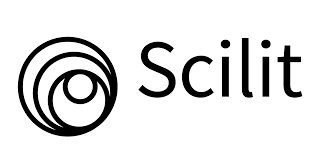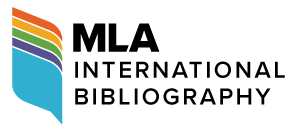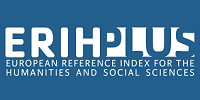About the Journal
Focus and Scope
HYBRIDA. Scientific journal on cultural hybridizations and migrant identities (ISSN 2660-6259) is a biannual open access journal with an international scientific committee and a peer review committee (double-blind system) that publishes original research in the field of cultural studies. Edited by the University of Valencia, it is addressed to a specialized international public that is interested in studies in the humanities and social sciences, and especially in Francophone or comparative production. We encourage the international scientific and university community to send us articles in all fields of the human sciences focused on the analysis of cultural productions from the perspective of intersectionality (gender, race, class...) and privileging French as the language of expression. We also accept articles in Spanish and English.
Peer Review Process
Articles submitted to the indexed sections (DOSSIER, MOSAIC and TRACES) will undergo a peer review evaluation process.
Papers submitted for inclusion in peer-reviewed sections will first be reviewed by members of the editorial staff, or the advisory board, who will check that the papers do meet the author guidelines and consider its suitability for the journal.
If the articles comply with the journal's guidelines, the texts will be sent to external reviewers (to the publishing institution or to the country), whose identity will remain anonymous, who might approve them, ask for changes or reject them (download evaluation form). If the article is rejected only by one of the reviewers, a third reviewer will evaluate the article.
Authors will have a maximum of three months from the date of communication of the expert opinion to send a new version of the article containing the requested changes. If the new version is not sent within this period, the article will be rejected.
Accepted articles will be published in the following issue once the evaluation process has been completed.
Authors will not be able to send another proposal for publication in the two issues following the article already published. They will therefore have to wait at least one year after the last publication of an article before sending a new text for review.
Publication proposals that disseminate content, opinions or judgments of a racist, xenophobic, sexist, serophobic nature or a phobia against any disease or disability, or that violate the dignity of the people who are members of the LGTBIQ + community (homophobia, transphobia) will be rejected. Proposals that promote hatred towards difference and diversity, that advocate terrorism or violate human rights, as well as those that prejudice fundamental rights and the Statutes of the University of Valencia, will be rejected as well.
Open Access Policy
HYBRIDA is an open access journal, which means that all content is freely available without charge to the user or their institution. Texts in the journal are published under Attribution-NonCommercial-ShareAlike 4.0 International (CC BY-NC-SA 4.0) International License. Users are allowed to read, download, copy, distribute, print, search or link the full texts of the articles in this journal without asking prior permission from the publisher or author. This is in accordance with the BOAI definition of open access.
Ethical Code
Content quality and rigour are the two fundamental aspects of HYBRIDA. Therefore, the journal considers it is essential to ensure that the process of evaluating and publishing of papers depends on a transparent process, supported by independent reviewers.
HYBRIDA promises to keep the following ethical rules during every stage of the publication process, following the recommendations of the Publications Ethics Committee (COPE). We present HYBRIDA good practice ethical code, concerning the different individuals and stages of the publication process.
Editor’s Responsibilities
The editors promise:
- To ensure the quality of the journal's content. To certify that the acceptance of papers depends only to the academic merit of the text.
- To act objectively and without discrimination based on the origin, place of work, gender, sexual orientation or religious or political beliefs.
- To keep the review process confidential, and assure the anonymity of the author during the whole process until the publication of the paper, as well as the anonymity of the reviewers during the process of evaluation and afterwards.
- To guarantee that the content is original and has not been previously published. For this, the journal uses specific software to detect any possible plagiarism. If plagiarism is detected during the review process, the document will be automatically rejected.
- To pay attention to complaints from the authors complaints and to justify conflicts regarding editorial decisions. Complaints will be dealt with as soon as possible.
- To offer authors the possibility to respond to any complaint concerning them. Any document referring to complaints will be kept.
- To promote the correction or removal of an article if necessary.
Reviewers' Responsibilities
- After receiving an invitation by the editor or coordinator to review the article, reviewers may only accept if they think they are qualified to to carry out the revision, and whether they agree to deliver it within the indicated deadline.
- Reviewers commit to evaluate the manuscripts objectively in order to improve the quality of journal content. If the reviewers think that they cannot carry out the review objectively, because of meddling economic, academic or personal interests, they should inform the editor, renouncing to the review if necessary.
- Reviewers cannot use information obtained during the review process for their own benefit or to discredit others.
- The comments of the reviewers must be constructive and respect the intellectual and academic capacity of the author. HYBRIDA reserves the right to edit comments if they can be considered disrespectful or harmful to the authors.
- Reviewers should inform about the most relevant research in the field that are not cited in the article.
- The review process is anonymous. The reviewers must respect confidentiality during and after the expertise. The reviewers should destroy documents after the evaluation of the paper.
- Reviewers must inform the editor if they have previously assessed the article for another journal. In this case, they shall renounce to the review.
- Reviewers must inform the editor if they detect content that is substantially similar to another paper under review.
Authors' Responsibilities
- The authors ensure that the document is original and not being reviewed for other publication.
- All the authors signing the document must have contributed in the research.
- Authors will ensure the veracity of their sources.
- Authors must keep a copy of all data associated with their research and share it with institutions or researchers that are interested in the matter.
- The authors are responsible for asking permission to publish any non-original additional material (figures, tables, images, etc.) and provide the source to the editor. They must always ensure that the material is royalty-free.
- Authors must specify if the research has received private or public funding of any kind and declare any possible conflict of interest.
- Authors will also notify the editor about any errors detected in the article. Likewise, they must cooperate in its correction.
Dealing with Unethical Behaviour
- Anyone can report unethical behavior to the editor. The journal will be attentive to any claim, whatever the stage of publication. Allegations must be supported by evidence to initiate any investigation.
- All complaints and allegations against unethical conduct of the journal will be considered.
- Firstly, the author will be given the opportunity to answer the submitted allegations.
- In the event of serious misconduct, if the author's answers are not satisfactory, the editor may consult a group of experts in the field.
- In any case, the editor will persist in obtaining a resolution to the problem.
- If the paper is found to be fraudulent after proper investigation, it will be retracted in an identifiable way from the journal and from the indexes.
Antiplagiarism
The content of the articles must be original and not have been simultaneously submitted to any other publication. HYBRIDA takes action to avoid plagiarism and any other possible malpractice by using anti-plagiarism tools like URKUND Antiplagiarism system.
Interoperability Protocol
Journal metadata is available through the OAI-PMH protocol at the following link:
https://ojs.uv.es/index.php/hybrida/oai/?verb=ListMetadataFormats
Good publishing practices in gender equality
HYBRIDA. Scientific journal on cultural hybridisations and migrant identities is firmly committed, both in its organisation and in its editorial features, to gender policies that lead to real equality between women and men in our scientific community and in society in general. In this way, HYBRIDA shares the United Nations goal of "expressing itself orally and in writing without discriminating against any particular sex, social gender or gender identity and without perpetuating gender stereotypes". In this sense, the journal makes use of inclusive language and, to this end, invites you to consult the different guides for the non-sexist use of language produced by Spanish universities and academic institutions, such as those compiled in 2015 by the Women's Institute of the Spanish Ministry of Health, Social Services and Equality or the Orientations pour un langage inclusif en français published by the United Nations.
On the other hand, it should be noted that more than 50% of the members of the journal's Editorial Board, as well as those of its evaluation panel, are women.
In addition, not only are the names of the authors who publish in the journal always given, but it is also advisable to indicate the full names of those who appear in the bibliographical references of each contribution and those who are members of the Editorial Board.
Also, to the extent that the nature of the articles allows, the journal will report on whether the source data of the research is gender-sensitive.































